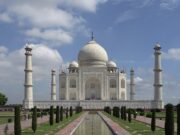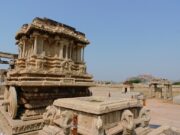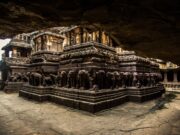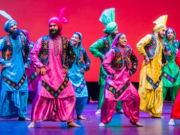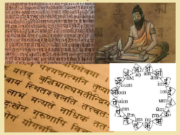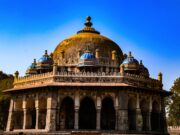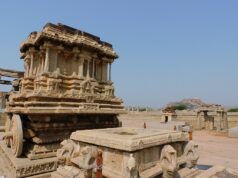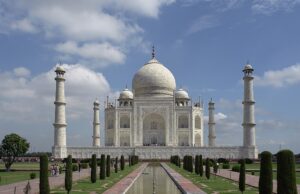One of the oldest and most multifaceted religions in the world is Hinduism. Its rich and complex theological traditions have fascinated scholars and seekers for centuries. One of the most common questions that people have about Hinduism is how many gods do hindus believe in.
The answer is not straightforward, as Hinduism is a highly diverse religion with a variety of beliefs and practices. Some Hindus believe in a single supreme deity known as Brahman, while others worship multiple gods and goddesses. The concept of God in Hinduism is complex and multifaceted, encompassing various ideas such as monism, pantheism, and polytheism. This blog post aims to delve into the various notions of God in Hinduism and provide insight into this captivating subject.
Understanding of Brahman in Hinduism:
In Hinduism, Brahman is often described as Satchidananda, which is a combination of three Sanskrit words: Sat (existence), Chit (consciousness), and Ananda (bliss). This concept refers to the nature of Brahman, which is said to be pure existence, consciousness, and bliss. Hindus who believe in Brahman as Satchidananda see it as the one true God, the ultimate and supreme being that is both the source of all existence and the essence of every individual soul. This understanding aligns with the idea of one God but also recognizes the interconnectedness and unity of all things in the universe. Therefore, the concept of Satchidananda provides a deeper understanding of Brahman and how it is perceived as one God in Hinduism.
The Role of Multiple Gods and Goddesses in Hinduism:
One of the outstanding attributes of Hinduism is the worship of multiple gods and goddesses, which may seem contradictory to the idea of one God. However, in Hinduism, these gods and goddesses are seen as different expressions or aspects of the same ultimate reality or Brahman. Each deity is associated with particular qualities, attributes, and roles, and they are worshipped for various purposes, such as health, prosperity, wisdom, and protection.
The Hindu pantheon includes countless gods and goddesses, each associated with unique qualities, attributes, and functions. The 33 Koti Gods is a concept in Hinduism that refers to the many different types of deities that are worshipped in the religion. Koti means “types” or “categories,” rather than an exact number, so it is not meant to suggest that there are only 33 gods. Instead, the concept implies that there are numerous categories of gods and goddesses, each with their own distinct roles and attributes.
Within these categories, some of the most prominent groups of gods include the 12 Adityas, the 11 Rudras, the 8 Vasus, and the 2 Ashvins. The Adityas are associated with the sun and the sky, while the Rudras are associated with storms and the hunt. The Vasus are associated with the elements of nature, such as fire and water, while the Ashvins are associated with healing and medicine.
These categories of gods and goddesses offer Hindus a diverse array of deities to worship, each with its own unique traits and functions. While this diversity may seem to contradict the idea of one God, it is important to note that these deities are all understood as manifestations or aspects of the same ultimate reality or Brahman.
The Impact of Hinduism’s Diversity on its Understanding of God:
Hinduism’s diversity has played a crucial role in shaping its followers’ understanding of God. Religion encompasses a vast range of beliefs, practices, and philosophies, which have given rise to multiple interpretations of divinity. Some Hindus view God as a single, omnipotent entity, while others believe in multiple deities that represent different aspects of the divine. This diversity has created a rich tapestry of religious expression and has allowed individuals to connect with God in their own unique way.
The Sanskrit phrase “Ekam Evadvitiyam” captures the essence of Hinduism’s understanding of God. It means “He is one without a second,” highlighting the unity and oneness of the divine. This phrase emphasizes that there is only one ultimate reality, and everything else is an illusion. It recognizes that the forms and manifestations in which God is worshipped are diverse but asserts that they are all different expressions of the same divine entity. “Ekam Evadvitiyam” underscores the importance of recognizing the underlying unity of all things and the oneness of God, regardless of the different names and forms in which it is worshipped.
Personal Perspectives: Hindus’ Individual Beliefs about God
Hinduism, one of the oldest and most complex religions in the world, believes in the existence of one true Universal Self or God, who manifests in various forms. According to Lord Krishna in Bhagwat Gita Chapter Ten, He is the source of all beings and gods, and all universes and creations spring from a spark of His splendor. He is seated in the hearts of all living entities and is represented by different aspects of gods such as Lord Rama, Lord Hanuman, and Goddess Saraswati.
Historically, the Hindu belief in the oneness of God dates back to the ancient Vedic period, where the sages described the ultimate reality as Brahman, the source of everything in the universe. This concept evolved over time, and various deities such as Vishnu, Shiva, and Brahma were worshipped as different manifestations of the same divine being.
In conclusion, Hinduism’s belief in the oneness of God and the manifestation of divine power in various forms is an integral part of its religious and philosophical heritage. The historical evolution of this belief adds a realistic touch to the Hindu faith, making it an enduring and fascinating subject of study and contemplation. Also, discover the untold stories and real facts about Ancient Bharat’s history! Follow our social media page for updates and stay connected to one of the world’s most fascinating civilizations!



